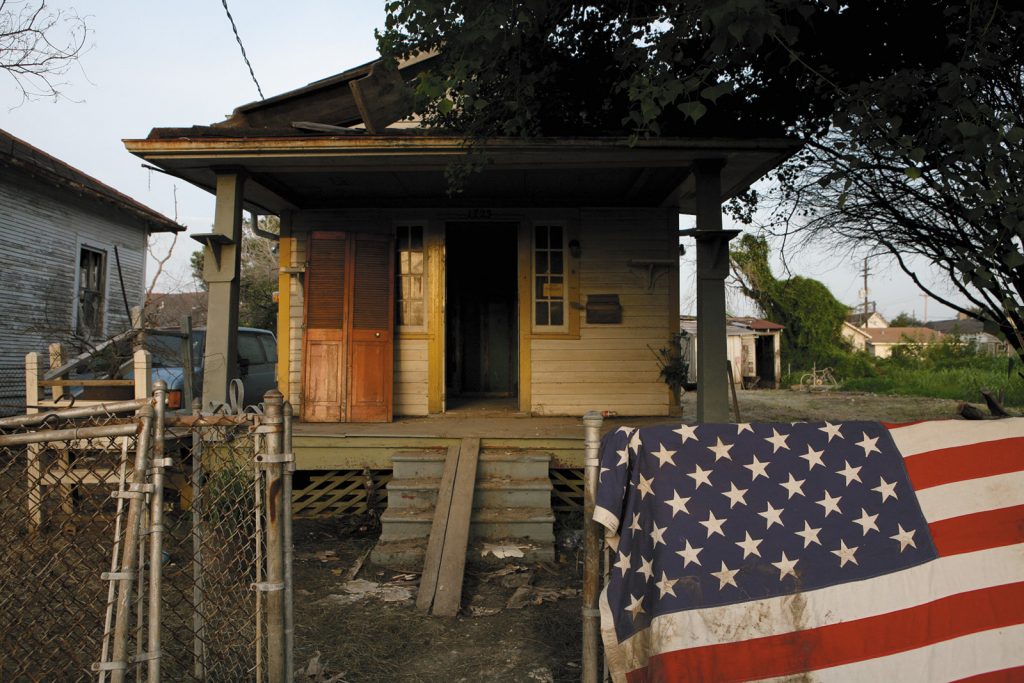
With another hurricane approaching the Louisiana coast this weekend (Delta? does that mean they ran out names for this year? Yes, yes it does), the NYRB reviews a new book about New Orleans – Katrina: A History, 1915-2015:
“I ain’t proud to be American no more,” Dean Blanchard, a shrimp distributor, told a reporter in 2015.1 Ten years earlier, his business was nearly ruined when Katrina, one of the most ferocious hurricanes in American history, pummeled New Orleans, killing at least 1,440 people and causing $150–$200 billion in economic damage, including nearly $1.5 billion to the local seafood industry. Five years later, BP’s Deepwater Horizon rig exploded off the coast of Louisiana, spewing more than 134 million gallons of oil into the Gulf of Mexico and its coastlands and decimating food populations. A lawsuit brought by the Southeast Louisiana Flood Protection Authority to hold oil companies responsible for the environmental damage they had caused was opposed by the governor, then dismissed by a federal court. Blanchard became convinced that nothing—not government, not infrastructure, not the courts—was protecting him or his neighbors, that no one was fighting on their behalf.
Blanchard was not alone in this view. As Andy Horowitz, a historian at Tulane University, shows in his new book, Katrina: A History, 1915–2015, “The experience of Katrina, compounded with the oil spill, increasingly served Louisianans as a metonym for federal illegitimacy.” He argues that while President Obama described the oil spill as “the worst environmental disaster America has ever faced,” and the media presented it as “an efficient drama” unfolding over the course of eighty-seven days, “few people on the coast experienced that tight narrative arc.”
Disaster histories are usually written for entertainment, not diagnosis. They tend to begin in a calm, tranquil moment. Suddenly, there is a disruption: water from a tsunami breaches the nuclear power plant; Patient Zero leaves the market; the levee breaks. When political leaders arrive on the scene, they attribute the damage to an “Act of God,” “Mother Nature,” an unforeseeable error. Horowitz argues that Hurricane Katrina obliterated this narrative. “The more I have thought about Katrina,” he writes, “the more uncomfortable I have become with the idea of ‘disaster’ altogether.” Disaster, Horowitz believes, is a political category—“at best an interpretive fiction, or at worst, an ideological script”—one that’s usually invoked to defend or maintain the status quo. His book asks a necessary question: What happens to the story of this one moment in time if we stretch it forward and back, looking for causes and consequences that reach beyond the storm?
It’s all one story – the land development, the discovery of oil, the expansive canal digging, the sinking, the demolished wetlands, the unprotected infrastructure at risk from large storms exacerbated the very activity of said infrastructure – that bleeds out into a completely understandable loss of civic faith. A few get rich, many suffer, told and re-told over and over again, from slave markets to oil refineries. Katrina, a long time in the making, can but remind us of other slow-motion catastrophes coming due just now.
